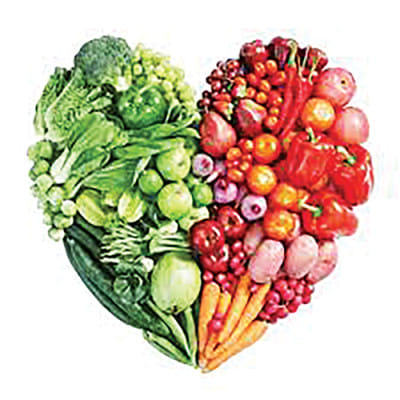Fertility and nutrition: Food that can help you get pregnant

What we eat can affect our chances of getting pregnant, but the full picture is not very clear-cut because it is hard to separate diet from other factors. It has been proven that food and healthy nutrition are tied to fertility health in both women and men. Additionally, there are substances that can hinder fertility. The best foods for getting pregnant are the same as those for general well-being: whole grains, healthy fats, and proteins.
The best advice for women is to —
Choose wholegrain high fibre foods such as brown bread, brown rice instead of white processed foods .
Eat more fruits and vegetables, including lentils and beans.
Avoid food rich in saturated 'bad' fats, such as fried foods, pastry, biscuits, pies and cakes. Eat more unsaturated 'good' fats, such as nuts, oily fish and seeds.
Avoid sugary foods (sweets, biscuits, cakes) and drinks (fizzy drinks).
Eat at least five portions of different fruits and vegetables each day (three vegetables if possible).
Reaching the ideal BMI of 18.5 to 24.9 and staying active also helps with fertility.
Iron deficiency anaemia is treated with iron supplement tablets. And also, green leafy vegetables, cereals and bread with extra iron in them (fortified), meat and organ meat, Pulses (beans, peas and lentils) may be advised.

If you have no periods or your periods come only occasionally, you may not be ovulating (releasing an egg from your ovary). This is a cause of infertility. Having a portion of full-fat dairy every day (such as milk or yoghurt) has been shown to help with this. It may be linked to the higher oestrogen levels in full fat dairy foods compared to low-fat.
Folic acid
All women need to take folic acid tablets before getting pregnant to build up the level of folic acid in their body to give maximum protection to the baby against neural tube defects such as spina bifida. It is almost impossible to get enough folic acid through diet to give the most protection. Most women should take 400mcg of folic acid every day for two months before trying for a baby and continue until 12 weeks of pregnancy. Folic acid may be obtained naturally through leafy, dark green vegetables (i.e. spinach), citrus fruits, nuts, legumes, whole grains, and fortified bread and cereals.
Zinc
Deficiencies in zinc affect both male and female fertility. Maintaining the recommended dietary allowance of zinc (15mg a day) can help keep your reproductive system functioning well.
Calcium
It is recommended that women get at least 1,000 mg (three 8 oz glasses of skim milk) of calcium a day if they are considering getting pregnant.
For men —
Men can improve the chances of a pregnancy with diet because sperm quality is affected by diet. Meals high in processed meat (such as bacon and sausages), alcohol, caffeine, red meat, saturated fats are linked to low quality sperm. Diets rich in fruits, vegetables, whole grains and fish are linked to better sperm quality. Eating a portion of walnuts a day was shown to help with sperm motility (ability to swim).
A word of caution —
If you are planning to have a baby, you are advised not to take any herbal or homeopathic products. Do not take any supplements containing vitamin A, such as liver or fish oil. High doses of vitamin A can affect the development of the baby in the womb.
The diet before pregnancy will affect the baby's development in the womb and their health in the future. If the diet has a lot of saturated fat and sugar before and during pregnancy, children will be more likely to suffer from high blood pressure and weight gain themselves later on in life.
Photo: Collected

 For all latest news, follow The Daily Star's Google News channel.
For all latest news, follow The Daily Star's Google News channel. 



Comments